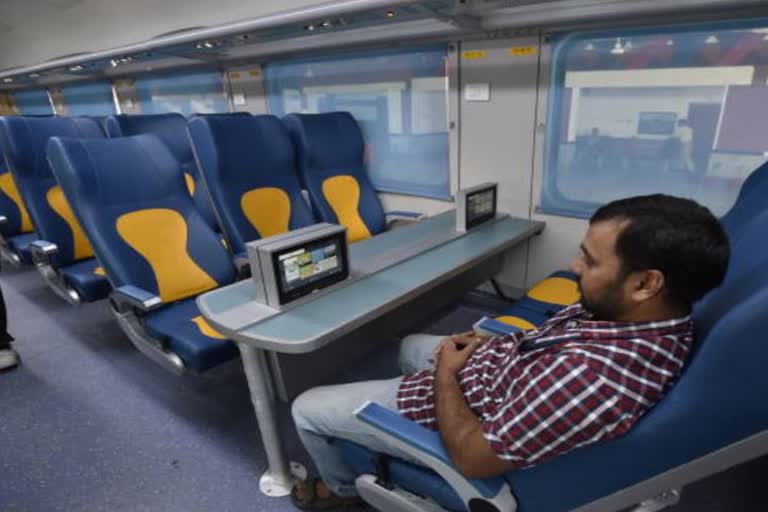New Delhi: Indian Railways has given private entities the freedom to decide upon the fare to be charged from the passengers for their 151 trains under the initiative of Public Private Partnership (PPP). However, these private operators will have to share the gross revenue with Railways, including the earnings from preferred seats, baggage and ads.
According to the Project Information Memorandum Document, these companies will have to use the existing Indian Railways Passenger Reservation System for booking tickets. Though, a mechanism will be built in to transfer the revenue earned to an escrow account.
Railway Board Chairman, VK Yadav, during a press conference allayed the fears of high prices of tickets of private trains saying that it will be market driven and based on competitive pricing. "For economic viability, private train operators can't increase ticket prices much," he added.
Railways has recently floated a Request for qualification (RFQ), inviting private entities to operate passenger trains on its network. The document released by Ministry of Railways stated that shortlisting of bidders will be based on their financial capacity who will be required to offer share in the Gross revenue at the request for proposal (RFP) stage for undertaking the project.
The definition of 'Gross Revenue' includes any amount accruing to the concessionaire from the passengers or any third party, from various provision of services to the passengers on account of running of trains under the concession agreement, including amount printed on ticket fare, amount from preferred seat options, baggage, cargo and from the on-board services, such as catering, bed roll, content on demand, wifi (if not included in the ticket fare).
It will also include any amount accusing to the concessionaire on account of advertising, branding and naming rights pursuant to the concession agreement.
Read more:Is Indian Railways really ready for private trains?
"However, the calculation of revenue will exclude station user fee and all statutory applicable indirect taxes, levies which the concessionaire is bound to pay," mentioned the memorandum.
